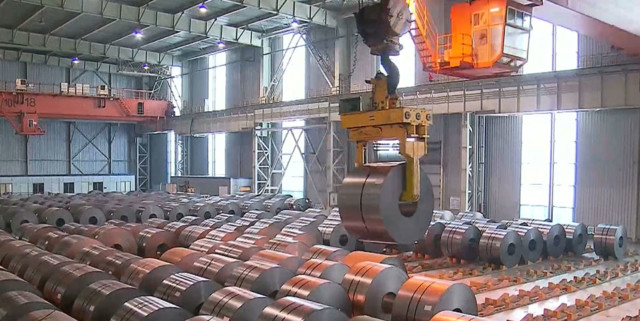On Friday, as U.S. tariffs on imports of steel and aluminum went into effect, President Donald Trump announced yet another country may be exempt.
“Some tremendous trade deals are being made with various countries,” Trump said. “We’re negotiating very long, very hard, but very quickly, and the deal with South Korea is…is very close to being finished.”
As Trump spoke, he was surrounded by top members of his administration, including Wilbur Ross, the U.S. Commerce Secretary.
Ross, and the U.S. Trade Representative Robert Lighthizer, have been negotiating the exemptions.
“We believe we are relatively close to a pretty comprehensive resolution with the South Korean government,” Ross said. “It would encompass if it goes through – both the 232 and broader trade issues – and we hope by sometime next week to be able to have a real announcement.”
Section 232 of the Trade Expansion Act of 1962 is what allows Trump to impose tariffs based on national security. Indeed, that’s what he cited earlier this month, as he signed off on duties of 25 percent on imports of steel and 10 percent on aluminum. Many countries, including China, complained. And many, except China, have been exempt. Critics see it as part of a series of moves by the Trump administration targeting Beijing.
On Thursday, in a separate move under Section 301 of the Trade Act of 1974, the White House announced it’ll impose additional tariffs on Chinese goods worth around $60 billion.
Beijing protested. As did the head of the World Trade Organization.
Roberto Azevedo warned of the consequences of Washington’s bypassing the international body set-up to resolve such disputes. On Friday, the U.S. submitted its official complaint in Geneva.
There were also warnings – and consequences – stateside.
On Friday, Markets went into a tailspin for the second day in a row. FedEx – a global shipper based in the U.S. – was trying to recover from having tumbled one day earlier to a five year low.
Some are bracing for more.
Analysts in the U.S. sense that so far, the reaction from China has been in response to the steel and aluminum tariffs.
They also expect reaction to the 301 tariffs – signed off this week – to be much bigger. And they’re closely watching Beijing’s moves.
 CGTN America
CGTN America

